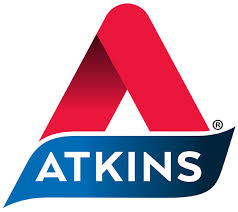Six Simply Good Foods insiders bought $1.1M of SMPL stock on April 9-13 at prices ranging from $16.32 to $16.86. The directors’ buying comes after the consumer goods company has fallen 42% YTD. Simply Good Foods makes branded nutrition bars and ready-to-drink shakes for people following the Atkins diet and other diet plans.
On April 6, Simply Good posted Q2 revenue of $227.1M vs. $221M consensus and adjusted EBITDA $41.7M vs. $34M consensus. However, SMPL also pulled guidance for the rest of 2020. The reason? Questions surrounding the COVID-19 pandemic’s impact on sales. The company warned that the severity and duration of the COVID-19 pandemic is uncertain and will likely continue during the second half of the company’s fiscal year.
After the Q2 report, SMPL opened 4% higher at $19.51, but sellers took over, and the stock closed at $15.77 on April 9 and was recently trading at $17.64.

The Simply Good Foods insiders are viewing the weakness as an opportunity. Over April 9-13, six directors filed Form 4’s disclosing a total of 68,000 shares at an average price of $16.31. All the insiders have extensive histories as executives in the packaged foods industry.
Six Simply Good Foods insiders bought on April 9-13.
| Filing Date | Insider | Title | Transaction | Trade Date | Shares | Avg. Price | Total | % Change |
| 09-Apr-2020 | Daley Clayton C Jr | Director | Open Mkt Buy | 09-Apr-2020 | 10,000 | 16.77 | $ 167,668 | 16.67% |
| 09-Apr-2020 | Ghez Nomi | Director | Open Mkt Buy | 09-Apr-2020 | 30,000 | 16.32 | $ 489,460 | 27.19% |
| 09-Apr-2020 | Healey James E | Director | Open Mkt Buy | 09-Apr-2020 | 5,000 | 16.86 | $ 84,300 | 9.96% |
| 13-Apr-2020 | Montgomery Robert G. | Director | Private Purchase | 13-Apr-2020 | 3,000 | 15.97 | $ 47,916 | 6.59% |
| 13-Apr-2020 | Ratzan Brian K. | Director | Private Purchase | 13-Apr-2020 | 15,000 | 16 | $ 240,000 | 22.64% |
| 13-Apr-2020 | Daley Clayton C Jr | Director | Private Purchase | 13-Apr-2020 | 5,000 | 15.97 | $ 79,850 | 7.14% |
The recent insider buying follows a $2.8M cluster of purchases by insiders in Jan. and Feb. of this year at prices around $23.
The SMPL post-Q2 report selling was likely focused on SMPL’s pulling of guidance. Here’s what CEO Joe Scalzo had to say about the COVID-19 impacts on his company’s sales.
“…March was really volatile. Through the early portion of March up to the weekend of the 20, 21, we saw a significant spike in foot traffic and a significant uptick in our business, in both our business as well as the category. The weekend of the 20th and 21st appeared to be an inflection point in people’s shopping behaviors, a dramatic fall-off, double digit fall-off that has remained through the end of the month in people’s shopping patterns and going into stores. We saw significant channel shifting, so e-commerce, online, pick-up and delivery all accelerated, and then brick and mortar saw a significant fall-off that’s kind of remained until now.”
Simply Good CEO on Covid impact: “E-commerce, online, pick-up and delivery all accelerated…brick and mortar saw a significant fall-off.”
In the Q&A, an analyst mentioned anecdotal information that business had picked up in early April. Scalzo replied: “Yes, the last few days have been much better than the previous two weeks.”
Scalzo went on to say:
As I mentioned earlier, we’re fortunate to participate in a category that has so many positive underlying growth characteristics. We believe that health and wellness will continue to be an important part of consumers’ lives, that the megatrends related to healthy snacking, convenience, meal replacement and on-the-go eating are long term trends, and that the low household penetration of this category will be a tailwind for our business for years to come. As such, we believe and have confidence in the long term growth prospects of our brands and our business.
On March 6, prior to the Q2 report and SMPL’s withdrawal of 2020 guidance, DA Davidson analyst Brian Holland lowered the firm’s price target on SMPL to $28 from $33. He kept a buy rating on the shares. The analyst said that heightened competition within shakes was likely the primary catalyst behind the deceleration of the company’s Atkins label. Holland noted however that the stock price decline had already priced in a potential miss in the company’s FY20 guidance, adding that the label needs to grow just 1%-2% in the second half of 2020 to reach the management’s targets.
You can follow insider buying at the SEC’s Edgar website or at sites like WhaleWisdom.com.
Contact Mark about investing based on SEC filings and smart money disclosures.
Disclaimer:
This investment blog (the “Blog”) is created and authored by Mark W. Gaffney (the “Content Creator”) and is published and provided for informational and entertainment purposes only (collectively, the “Blog Service”). The information in the Blog constitutes the Content Creator’s own opinions. None of the information contained in the Blog constitutes a recommendation that any particular security, portfolio of securities, transaction, or investment strategy is suitable for any specific person. You understand that the Content Creator is not advising, and will not advise you personally concerning the nature, potential, value or suitability of any particular security, portfolio of securities, transaction, investment strategy or other matter. To the extent any of the information contained in the Blog may be deemed to be investment advice, such information is impersonal and not tailored to the investment needs of any specific person.
From time to time, the Content Creator or its affiliates may hold positions or other interests in securities mentioned in the Blog and may trade for their own account(s) based on the information presented. The Content Creator may also take positions inconsistent with the views expressed in its messages on the Blog.
The Content Creator may hold licenses with FINRA, the SEC or states securities authorities and these licenses may or may not be disclosed by the Content Creator in the Blog.
Investing in the investments discussed in the Blog may be risky and speculative. The companies may have limited operating histories, little available public information, and the stocks they issue may be volatile and illiquid. Trading in such securities can result in immediate and substantial losses of the capital invested. You should use invest risk capital, and not capital required for other purposes, such as retirement savings, student loans, mortgages or education.




